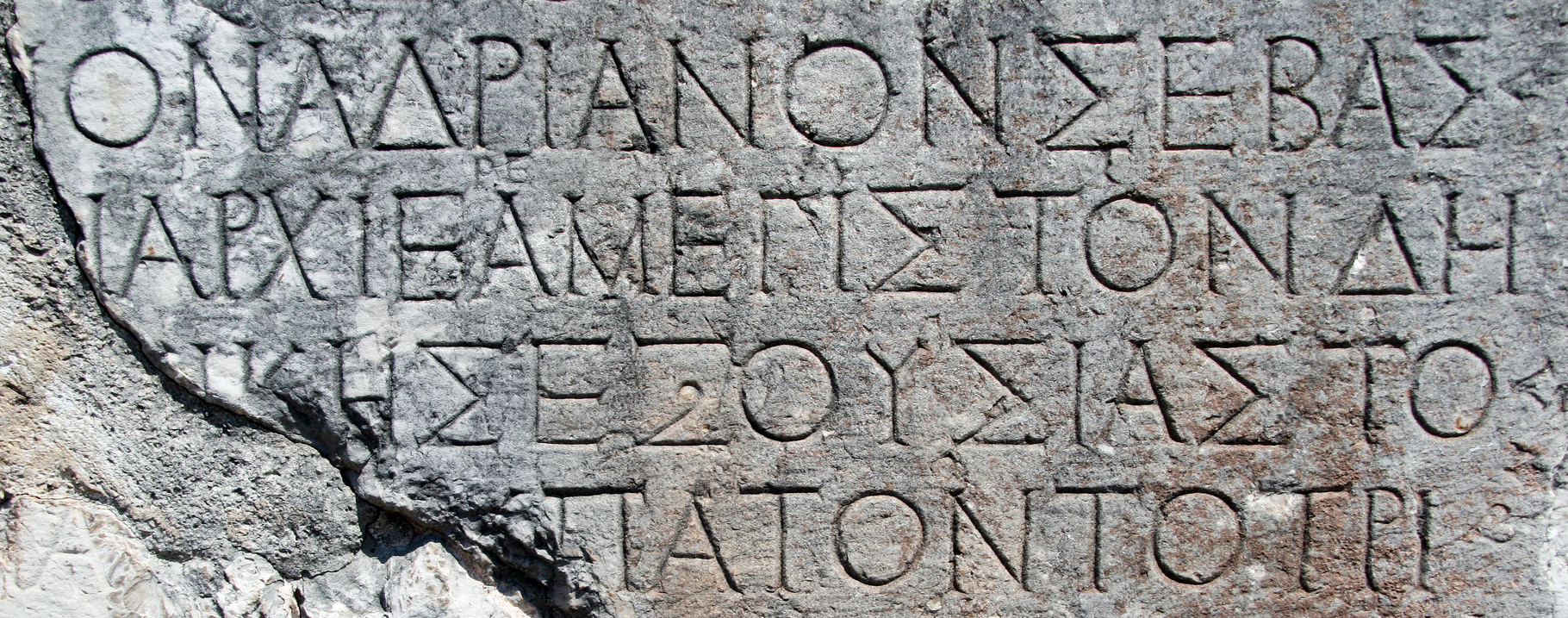About the…
Greek language in the Bible
The Greek language has the longest documented history of any living Indo-European language, spanning at least 3,400 years of written records.
Alphabet
It consists of 24 letters with an upper and lowercase:
- Α α
alpha - Β β
beta - Γ γ
gamma - Δ δ
delta - Ε ε
epsilon - Ζ ζ
zeta - Η η
eta - Θ θ
theta - Ι ι
iota - Κ κ
kappa - Λ λ
labda or lambda - Μ μ
mu - Ν ν
nu - Ξ ξ
xi - Ο ο
omicron - Π π
pi - Ρ ρ
rho - Σ σ/ς
sigma - Τ τ
tau - Υ υ
upsilon - Φ φ
phi - Χ χ
chi - Ψ ψ
psi - Ω ω
omega
The New Testament was written in the Koine Greek language (Common Greek; the common dialect). So was the Septuagint, a Greek translation of the Old Testament Hebrew. The modern Greek Orthodox churches continue to use this dialect in their liturgy.
The word “Greek”
The word “Greek” is found only in the New Testament, where a distinction is observed between “Greek” and “Grecian.”
In Scripture, a “Greek” is a Greek by descent or simply a Gentile as opposed to a Jew (Romans 2:9-10 KJV).
…a certain disciple was there, named Timotheus, the son of a certain woman, which was a Jewess, and believed; but his father was a Greek… —Acts 16:1-3 KJV
I am debtor both to the Greeks, and to the Barbarians; both to the wise, and to the unwise. —Romans 1:14 KJV
Then all the Greeks took Sosthenes, the chief ruler of the synagogue, and beat him before the judgment seat. … —Acts 18:17 KJV excerpt and Acts 18:17 NKJV
Note: In the above verse, the word “Greeks” is not in the original text, but was added to explain who “all” of them were. Therefore, to be accurate, other translation leave out the word “Greeks” (examples: Acts 18:17 NASB; Acts 18:17 ESV
Grecians / Hellenists
A Grecian means “one who speaks Greek” and is a foreign Jew opposed to a home Jew who lives in Judea.
Error in the King James Version of Acts 11:
And some of them were men of Cyprus and Cyrene, which, when they were come to Antioch, spake unto the Grecians, preaching the Lord Jesus. —Acts 11:20 KJV
In the above King James Version translation, the word “Grecians” should be “Greeks” or “Hellenists” denoting the heathen Greeks of that city.
More recent translations…
“…Hellenists…” —Acts 11:20 NKJV; Acts 11:20 ESV
“…Greeks…” —Acts 11:20 NASB
More Information
- Writing
- Greece
- Javan
- What are Grecians?
- What is dispersion?
- Corinth, Greece
- Achaia, Greece
- First Epistle to the Corinthians
- Second Epistle to the Corinthians
- Who is Paul?
- Who is Alexander the Great?
- What are Gentiles?
- What is the New Testament?
- What is the Septuagint?
